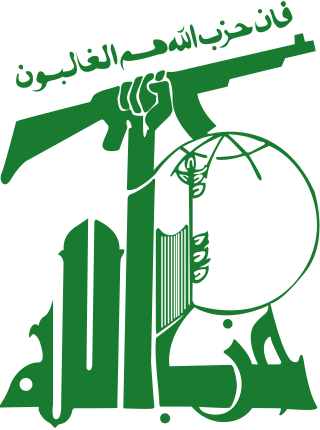
Hezbollah is a Lebanese Shia Islamist political party and paramilitary group. Hezbollah's paramilitary wing is the Jihad Council, and its political wing is the Loyalty to the Resistance Bloc party in the Lebanese Parliament. Its armed strength was assessed to be equivalent to that of a medium-sized army in 2016.

Lebanon, officially the Republic of Lebanon, is a country in the Levant region of West Asia. Situated at the crossroads of the Mediterranean Basin and the Arabian Peninsula, it is bordered by Syria to the north and east, Israel to the south, and the Mediterranean Sea to the west; Cyprus lies a short distance from the coastline. Lebanon has a population of more than five million and an area of 10,452 square kilometres (4,036 sq mi). Beirut is the country's capital and largest city.

Beirut is the capital and largest city of Lebanon. As of 2014, Greater Beirut has a population of 2.5 million, just under half of Lebanon's population, which makes it the fourth-largest city in the Levant region and the sixteenth-largest in the Arab world. The city is situated on a peninsula at the midpoint of Lebanon's Mediterranean coast. Beirut has been inhabited for more than 5,000 years, making it one of the oldest cities in the world.

Mt. Lebanon is a township with home rule status in Allegheny County, Pennsylvania, United States. The population was 34,075 at the 2020 census. It is a suburb of Pittsburgh. Established in 1912 as Mount Lebanon, the township was a farming community. With the arrival of the first streetcar lines and the development of the first real estate subdivision, both in 1901, it became a streetcar suburb, offering residents the ability to commute to Downtown Pittsburgh. Furthermore, the opening of the Liberty Tunnel in 1924 allowed easy automobile access to Pittsburgh. In 1975, the renamed Mt. Lebanon adopted one of the first home rule charters in Pennsylvania.

Rafic Bahaa El Deen al-Hariri was a Lebanese businessman and politician who served as prime minister of Lebanon from 1992 to 1998 and again from 2000 to 2004.

The culture of Lebanon and the Lebanese people emerged from Phoenicia and through various civilizations over thousands of years. It was home to the Phoenicians and was subsequently conquered and occupied by the Assyrians, the Greeks, the Romans, the Persians, the Arabs, the Crusaders, the Ottomans and the French. This variety is reflected in Lebanon's diverse population, composed of different religious groups, and features in the country's festivals, literature, artifacts, cuisine and architecture of Lebanon. Despite colonization by different entities genetic testing has revealed that 89% of Lebanese people today descend from the Phoenicians. Regardless of religion or colonization which were layers of paint on top.

The Lebanon national football team, controlled by the Lebanese Football Association (LFA), have represented Lebanon in association football since their inception in 1933. The squad is governed by the Asian Football Confederation (AFC) continentally, and FIFA worldwide. While Lebanon have yet to qualify for the FIFA World Cup, they have qualified three times to the AFC Asian Cup: they first participated in 2000, when they hosted the event. Lebanon's main venue is the Camille Chamoun Sports City Stadium in Beirut; however they also play in other locations such as the Saida Municipal Stadium in Sidon.

Saad El-Din Rafik Al-Hariri is a Lebanese businessman and retired politician who served as the prime minister of Lebanon from 2009 to 2011 and 2016 to 2020. The son of Rafic Hariri, he founded and has been leading the Future Movement party since 2007. He is seen as "the strongest figurehead" of the March 14 Alliance.

Lebanese diaspora refers to Lebanese migrants and their descendants who emigrated from Lebanon and now reside in other countries. There are more people of Lebanese origin living outside Lebanon than within the country. The diaspora population consists of Christians, Muslims, Druze, and Jews. The Christians trace their origin to several waves of emigration, starting with the exodus that followed the 1860 Lebanon conflict in Ottoman Empire.

The Lebanese people are the people inhabiting or originating from Lebanon. The term may also include those who had inhabited Mount Lebanon and the Anti-Lebanon Mountains prior to the creation of the modern Lebanese state. The major religious groups among the Lebanese people within Lebanon are Shia Muslims (27%), Sunni Muslims (27%), Maronite Christians (21%), Greek Orthodox Christians (8%), Melkite Christians (5%), Druze (5%), Protestant Christians (1%). The largest contingent of Lebanese, however, comprise a diaspora in North America, South America, Europe, Australia and Africa, which is predominantly Maronite Christian.
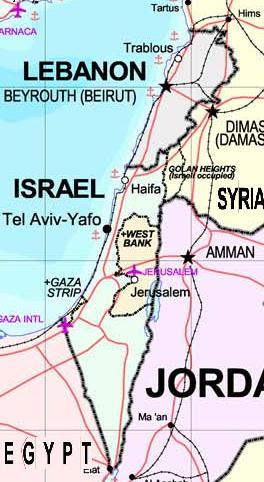
The Israeli–Lebanese conflict, or the South Lebanon conflict, is a long-running conflict involving Israel, Lebanon-based paramilitary groups, and sometimes Syria. The conflict peaked during the Lebanese Civil War. In response to Palestinian attacks from Lebanon, Israel invaded the country in 1978 and again in 1982. After this it occupied southern Lebanon until 2000, while fighting a guerrilla conflict against Shia paramilitaries. After Israel's withdrawal, Hezbollah attacks sparked the 2006 Lebanon War. A new period of conflict began in 2023, leading to the 2024 Israeli invasion of Lebanon.

The 2006 Lebanon War was a 34-day armed conflict in Lebanon, fought between Hezbollah and Israel. The war started on 12 July 2006, and continued until a United Nations-brokered ceasefire went into effect in the morning on 14 August 2006, though it formally ended on 8 September 2006 when Israel lifted its naval blockade of Lebanon. It marked the third Israeli invasion into Lebanon since 1978.
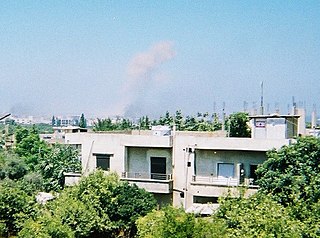
The 2007 Lebanon conflict began when fighting broke out between Fatah al-Islam, an Islamist militant organization, and the Lebanese Armed Forces (LAF) on May 20, 2007 in Nahr al-Bared, a UNRWA Palestinian refugee camp near Tripoli.
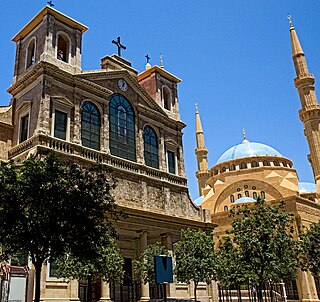
Lebanon is an eastern Mediterranean country that has the most religiously diverse society within the Middle East, recognizing 18 religious sects. The recognized religions are Islam, Druze, Christianity and Judaism.

The Beirut River is a river in Lebanon separating the city of Beirut from its eastern suburbs, primarily Bourj Hammoud and Sin el Fil. The river flows mostly east to west from snow drains and springs on the western slopes of Mount Kneisseh and the southern end of Mount Sannine near the towns of Hammana and Falougha, before curving north and emptying at Beirut's northern Mediterranean coast, east of the Port of Beirut. According to popular legend, St. George slew the dragon in a spot near the mouth of the river.

Najib Azmi Mikati is a Lebanese politician and businessman who has been serving as the 52nd prime minister of Lebanon since 2021. He previously served in this post as the 48th and 45th prime minister from 2011 to 2014 and in 2005. He previously served as the Minister of Public Works and Transport from December 1998 to 2003.

The 2011 Lebanese protests, also known as the Intifada of Dignity or Uprising of Dignity were seen as influenced by the Arab Spring. The main protests focused on calls for political reform especially against confessionalism in Lebanon. The protests initiated in early 2011, and dimmed by the end of the year. In another aspect of the Arab Spring, Lebanese pro and anti-Assad factions descended into sectarian violence, which culminated in May–June 2012.

Bechara Boutros Al-Ra'i is the 77th Maronite Patriarch of Antioch, and head of the Maronite Church, a position he has held since 15 March 2011, succeeding Patriarch Nasrallah Boutros Sfeir. Rahi was made a cardinal on 24 November 2012 by Pope Benedict XVI.

Between 2011 and 2017, fighting from the Syrian civil war spilled over into Lebanon as opponents and supporters of the Syrian Arab Republic traveled to Lebanon to fight and attack each other on Lebanese soil. The Syrian conflict stoked a resurgence of sectarian violence in Lebanon, with many of Lebanon's Sunni Muslims and Lebanon's Christians supporting the rebels in Syria, while many of Lebanon's Shi'a Muslims supporting the Ba'athist government of Bashar Al-Assad, whose Alawite minority is usually described as a heterodox offshoot of Shi'ism. Killings, unrest and sectarian kidnappings across Lebanon resulted.
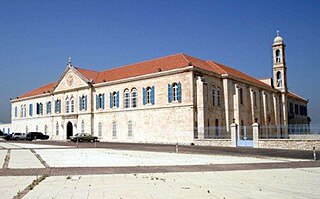
The Maronite Church is an Eastern Catholic sui iuris particular church in full communion with the pope and the worldwide Catholic Church, with self-governance under the Code of Canons of the Eastern Churches. The head of the Maronite Church is Patriarch Bechara Boutros al-Rahi, who was elected in March 2011 following the resignation of Patriarch Nasrallah Boutros Sfeir. The seat of the Maronite Patriarchate is in Bkerke, northeast of Beirut, Lebanon. Officially known as the Antiochene Syriac Maronite Church, it is part of Syriac Christianity by liturgy and heritage.

















